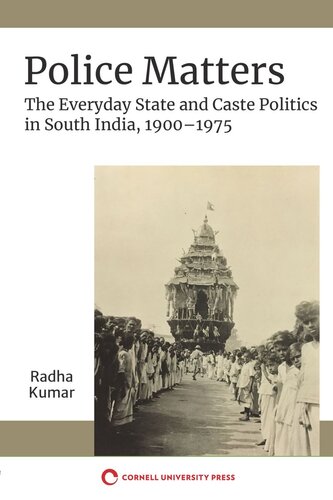

Most ebook files are in PDF format, so you can easily read them using various software such as Foxit Reader or directly on the Google Chrome browser.
Some ebook files are released by publishers in other formats such as .awz, .mobi, .epub, .fb2, etc. You may need to install specific software to read these formats on mobile/PC, such as Calibre.
Please read the tutorial at this link: https://ebookbell.com/faq
We offer FREE conversion to the popular formats you request; however, this may take some time. Therefore, right after payment, please email us, and we will try to provide the service as quickly as possible.
For some exceptional file formats or broken links (if any), please refrain from opening any disputes. Instead, email us first, and we will try to assist within a maximum of 6 hours.
EbookBell Team

4.7
56 reviewsPolice Matters moves beyond the city to examine the intertwined nature of police and caste in the Tamil countryside. Radha Kumar argues that the colonial police acted as tools of the state in deploying rigid notions of caste, refashioning rural identities in a process that has cast long postcolonial shadows.
Kumar draws on unexplored police archives to enter the dusty streets and market squares where local constables walked, following their gaze and observing their actions towards potential subversives. Station records present a textured view of ordinary interactions between police and society, showing that state coercion was not only exceptional and spectacular; it was also subtle and continuous, woven into everyday life. The colonial police categorized Indian subjects based on caste to ensure the security of agriculture and trade, and thus the smooth running of the economy. Among policemen and among the objects of their coercive gaze, caste became a particularly salient form of identity in the politics of public spaces. Police Matters demonstrates that, without doubt, modern caste politics have both been shaped by, and shaped, state policing.